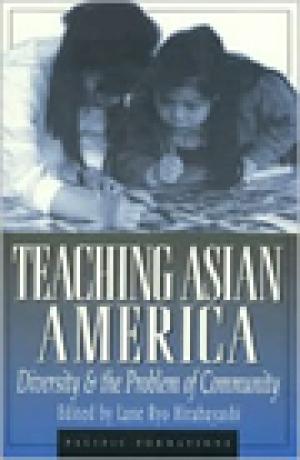Resources
Elizabeth Ellsworth finds that critical pedagogy, as represented in her review of the literature, has developed along a highly abstract and Utopian line which does not necessarily sustain the daily workings of the education its supporters advocate. The author maintains that the discourse of critical pedagogy is based on rationalist assumptions that give rise to repressive myths. Ellsworth argues that if these assumptions, goals, implicit power dynamics, and issues of who produces valid knowledge remain untheorized and untouched, critical pedagogues will continue to perpetuate relations of domination in their classrooms. The author paints a complex portrait of the practice of teaching for liberation. She reflects on her own role as a White middle-class woman and professor engaged with a diverse group of students developing an antiracist course. Grounded in a clearly articulated political agenda and her experience as a feminist teacher, Ellsworth provides a critique of "empowerment," "student voice," "dialogue," and "critical reflection" and raises provocative issues about the nature of action for social change and knowledge.
Journal Issue. (This issue, and all "Spotlight on Teaching" issues prior to 1999, are not available on the AAR website.)

Offers a critical analysis of hooks' engaged pedagogy and its promise for the teaching/learning process, and assesses the relevance of strategies entailed in her engaged pedagogy to a Third World context. Part I presents her social theory as expressed in her critique of capitalism, patriarchy, and White supremacy in American society. Part II presents her education theory, and Part III discusses issues arising from application of engaged pedagogy to the educational system of Kenya. (From the Publisher)

This innovative volume offers the first sustained examination of the myriad ways Asian American Studies is taught at the university level. Through this lens, this volume illuminates key debates in U.S. society about pedagogy, multiculturalism, diversity, racial and ethnic identities, and communities formed on these bases. Asian American Studies shares critical concerns with other innovative fields that query representation, positionality, voice, and authority in the classroom as well as in the larger society. Acknowledging these issues, twenty-one distinguished contributors illustrate how disciplinary and interdisciplinary approaches to Asian American Studies can be utilized to make teaching and learning about diversity more effective. "Teaching Asian America" thus offers new and exciting insights about the state of ethnic studies and about the challenges of pluralism that face us as we move into the twenty-first century. (From the Publisher)
Concentrating on the "practices" of Christianity enables us to think about education in new ways. Identifying practices as the sites of learning in theological education allows us to avoid some common "divisions" in thinking about education and calls for the development of new language to name the process of education.
Identifies a teaching method which calls upon students to prepare and present lessons for most of the semester. Notes that the technique allows the instructor to derive more enjoyment from teaching and spend less time preparing lessons. Describes application of the method in a "Feminist Theory in the Humanities" course.
The paper presents and critiques some important philosophical and educational arguments that are used to support the practice of personal self-disclosure in the classroom, both in group settings and in the form of autobiographical journals. It argues that there are important reasons for valuing privacy even when self-disclosures occur in an environment of perfect trust and caring; that to understand the importance of privacy primarily in terms of trust, or the absence of trust, is to risk overlooking the less apparent, yet more subtle, threats which ‘sympathy’ and ‘caring’ can pose to self-disclosers.
The politics of pedagogy when teaching for belief in culturally diverse settings inevitably draws attention to the power dynamics in the encounters of teachers and students. The quest for a pedagogy that is not oppressive or coercive provides the impetus to liberative proposal for teaching practice.
Focuses on the tensions and contradictions within feminist pedagogy. Contradictory dimensions of feminists' locations in the academy; Power and authority; Pedagogy and performativity; Feminist difference and the politics of positionality; Claims of authority and the impossibility of normative judgments; Contradictions of institutional and pedagogical authority.